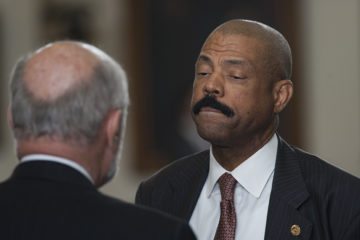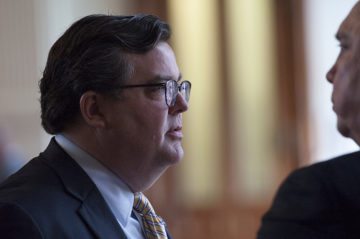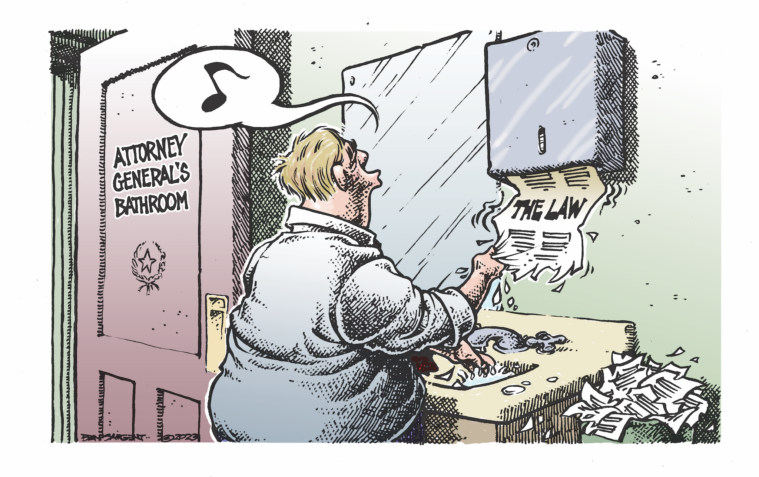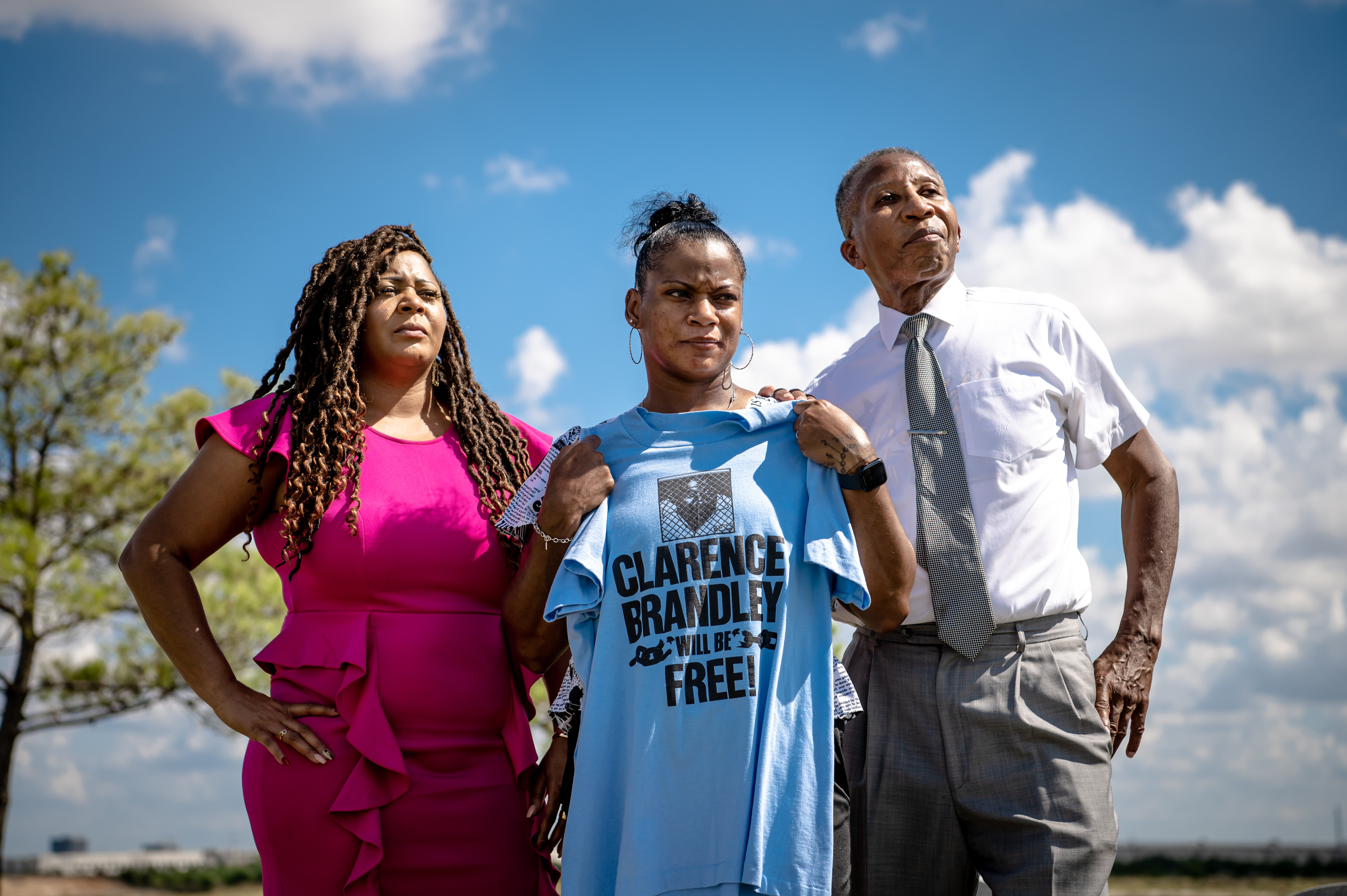
Traffic Ticketing Program That Feeds Debtors’ Prison Pipeline May Be in its Final Year
To repeal the Driver Responsibility Program, lawmakers are proposing to increase all Texas traffic fines by $20.


Since 2003, an obscure Texas Department of Public Safety (DPS) program has trapped more than a million Texans in a cycle of debt, opponents say. For nearly as long, lawmakers critical of the program have sought to repeal it. This might be their year.
The Driver Responsibility Program funds trauma centers around the state by levying hefty fees against repeat offenders. Drivers accumulate points on their licenses when they commit traffic violations. At six points, a for-profit DPS contractor hits drivers with a surcharge of between $100 and $2,000 to be paid each year for three years. And that’s in addition to traffic fines, court costs, and attorney’s fees. Reformers say the program thrusts poor Texans into a downward spiral that progresses from unpaid fines and suspended licenses to hefty fees and jail time.
“It just entrenches poor people and people of color in debt and in prison,” said Senator Borris Miles, D-Houston. “It’s just another tool to keep us down.”
Miles and Representative Larry Phillips, R-Sherman, each filed bills that would repeal the program, covering trauma funding by raising all traffic tickets — not just for repeat offenders — by $20. Phillips’ House Bill 2068 cleared the House earlier this month. On Wednesday morning, the Senate Transportation Committee heard public testimony on the measure and left it pending. Miles’ identical measure stalled in that committee in late March.

Senate Transportation Chair Robert Nichols, R-Jacksonville, said he’s been hearing proposals to repeal the Driver Responsibility Program since he became a senator 10 years ago. No such bill has ever cleared the House, he said. Nichols and several other committee members seemed receptive to Phillips’ bill, which Miles laid out on Wednesday.
“We’ve never had [a bill] leave and actually get across the building, so I’m really hoping we do something to take this seriously and minimize this,” Nichols said.
Several interest groups representing judges, hospitals, counties and businesses spoke in support of Phillips’ bill at the hearing. The Texas Fair Defense Project (TFDP) and the Harris County Public Defender’s Office opposed the measure.
Emily Gerrick, staff attorney for the TFDP, said she takes issue with the bill because, unlike the DRP, it doesn’t include an indigency waiver that would exempt the poorest Texans from license suspension. Judge Bill Gravell, a Williamson County justice of the peace, said that judges will be able to assess indigency. Nichols and Miles both recognized that a floor amendment could resolve Gerrick’s issue with the bill.
Staring down a $10 billion budget gap during the 78th Legislature in 2003, lawmakers concocted the Driver Responsibility Program to fund the state’s 290 trauma facilities. The program has since raised billions for emergency medical services. But those dollars come with a steep human cost, critics say.
“When you add up the surcharges and the more expensive insurance and all of the other things … it’s not just just the $20 or $30 a month that I have to pay to the program,” said Samantha Smith, a “DRP victim” quoted in a Texas Criminal Justice Coalition (TCJC) video. “It has been legal fees. It has been paying off citations. And all of those things put together are a constant drain on my finances, which weren’t great to begin with.”
Fines left unpaid turn into suspended licenses, which turn into bigger fines. Unable to pay, some drivers end up “sitting out” their fines in jail, resulting in de facto debtors’ prison. Critics on both sides of the aisle, including Texas Supreme Court Chief Justice Nathan Hecht, a Republican, have called the practice unconstitutional.
“[The Driver Responsibility Program] catches low-income Texans in particular in an endless maze of fines and license suspension,” said Nick Hudson, criminal justice policy analyst for the ACLU of Texas. “It forces them to make a choice between driving with a suspended license and supporting themselves and their families.”

Phillips, a North Texas conservative, is reluctant to use the term “debtors’ prison.” But he acknowledges that the system is problematic.
“We’ve heard over the years from people around the state — judges, law enforcement, citizens — that it is an ineffective system, and it has created problems in people’s lives,” he said.
DPS has suspended more than 1.3 million licenses during the 14-year life of the program. In the same period, the agency collected less than half of all fees assessed — leaving uncollected more than $2 billion of the $3.5 billion assessed, Miles said.
Past efforts to repeal the program failed because they didn’t establish replacement funding for the trauma centers, Hudson said. Phillips and Miles solved that problem by raising the fees for all traffic citations from $30 to $50.
That solution passes the cost onto all Texas drivers. A better fix, according to El Paso Democrat José Rodríguez, would have been to use general revenue or some other form of state funding. Rodríguez, who sits on the Transportation Committee, raised this point at Wednesday’s hearing. A representative from the Texas Hospital Association agreed, but both said that Phillips’ bill was better than the status quo.
HB 2068 would cover trauma funding and generate an additional $13.8 million during the coming two-year budget cycle, according to the comptroller’s office. Hudson and Phillips are “cautiously optimistic” that the bill will pass.
“It’s a jubilee, a moment of hope for everyone trapped in the system,” Phillips said.


